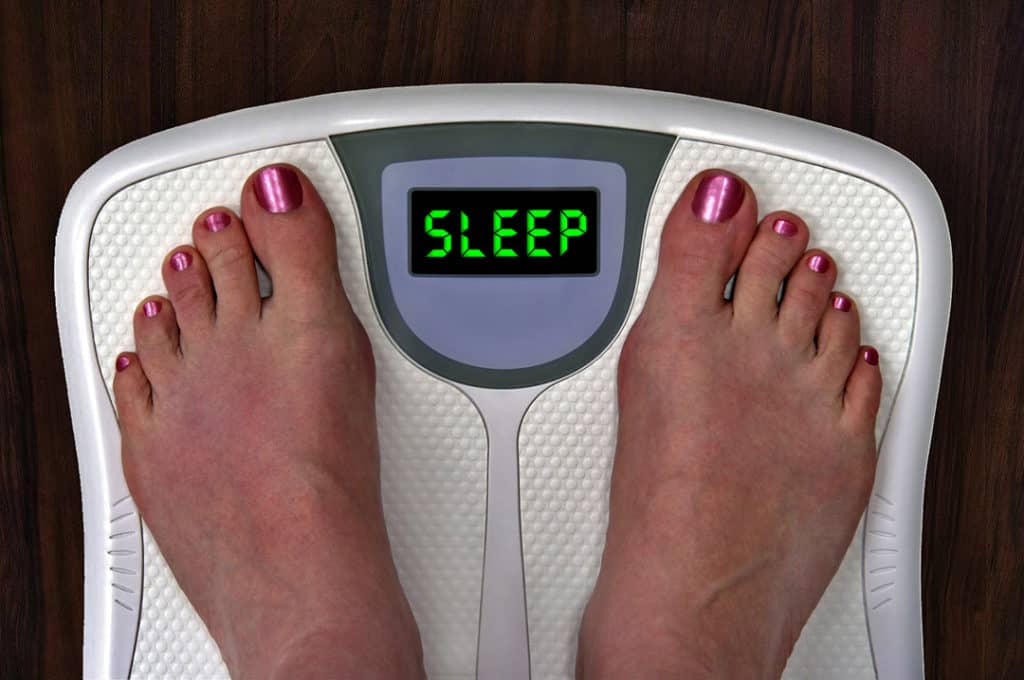When you have sleep deprivation you run low on energy and automatically go for a bag of potato chips or other comfort foods. You might be wondering is Sleep Deprivation And Weight Gain connected?
Sleep Deprivation And Weight Gain can sabotage your waistline and your health. It due to poor food choices and sleep patterns lead to obesity.
Sleep curtailment has become a common complaint and a lot of individuals are repost the same.
Understanding the Sleep-Diet Connection
It does not mean if you sleep properly you will lose weight, but if a person does not get enough sleep the metabolism doe not function properly and that affects body weight. On average we need 7.5 hours o sleep every night. How our sleep affects our weight depends upon our hormones.
Ghrelin and leptin are the two hormones that play a key role in that. Ghrelin controls hunger and when a person is lacking on sleep, it increased in the body. Leptin indicates when to stop eating. When sleep-deprived body produces less leptin. More ghrelin plus less leptin means more weight.
You are eating more, plus your metabolism is slower when you are sleep-deprived leads to an increase in body weight.
The Sleep-Weight Loss Solution
Avoid any caffeine in the afternoon because it will keep you in the Exercise also helps improve sleep quality. How soon before bed should you exercise? It depends — everyone is different. It is important to exercise than when to exercise.
Watch what you eat before bedtime. Pizza and a drink before bedtime is not a good idea, neither is eating a big meal close to bedtime.
How many hours of sleep are enough for good health?
Age is a major factor that affects sleep. While sleep needs vary significantly among these are general guidelines for different age groups:
Age group Recommended amount of sleep
Newborns 14 to 17 hours a day
12 Months Old About 10 hours at night, 4 hours of naps
2 Years About 11 to 12 hours at night, plus a 1- to 2-hour
afternoon nap.
3 to 5 Years 10 to 13 hours
6 to 13 Years 9 to 11 hours
14 to 17 Years 8 to 10 hours
Adults 7 to 9 hours
Other factors that affect the sleep quantity are:
- Pregnancy. Changes in the body during early pregnancy can increase the need for sleep.
- Ageing. Older adults need more hours of sleep than younger adults. Their sleep is lighter and of shorter duration.
- Previous sleep deprivation. The need of the hour of sleep increases if a person is sleep-deprived
- Sleep quality. Quality of sleep is as important as quantity of sleep.
7 Ways Sleep Can Help You Lose Weight
Sleep is as important as exercise and diet when it comes to losing weight.
Poor Sleep Is a Major Risk Factor for Weight Gain and Obesity
Poor sleep has been linked to a higher body mass index (BMI) and therefore weight gain. Moreover, several conditions such as sleep apnea, get worsened by gaining weight.
Problems in sleep can cause the deposition of fat, which can cause sleep quality to decrease even further. It is hard to escape, vicious cycle. Studies indicate that bad sleep quality is associated with obesity in both young and adults.
Poor Sleep Can Increase Your Appetite
Researchers have suggested that increased appetite is a common trait in sleep-deprived people. This is caused by the impact on two hormones, ghrelin and leptin. Ghrelin is a hormone released in the stomach that controls hunger. Its levels are high before hunger and reduce after eating. Leptin is released from fat cells and it suppresses hunger and signals fullness in the brain. When a body is sleep deprived, ghrelin is produced more, and leptin\’s secretion is reduced, hence leading to weight gain
Also, the hormone cortisol is higher when you do not get adequate sleep. Cortisol is a stress hormone that may also increase appetite.
Poor Sleep May Decrease Your Resting Metabolism
Resting metabolic rate (RMR) is the number of calories the body burns when completely at rest. It’s affected by age, weight, height, sex and muscle mass. Researchers show that RMR is reduced with sleep deprivation.
Sleep Can Enhance Physical Activity
Lack of sleep makes a person more lethargic and lazy. Besides, you are more likely to get tired earlier during physical activity. Good sleep is also known to improve athletic performace.
It Helps Prevent Insulin Resistance
Poor sleep can cause cells to become insulin resistant. Insulin is a hormone that oxidizes sugar from the bloodstream.
When cells become insulin resistant, more sugar remains in the bloodstream and the body produces more insulin to compensate. Excess insulin further increased hunger which leads to weight gain.
Key points
- There has been a parallel increase in the prevalence of sleep deprivation and increase in body weight in both adults and children.
- Laboratory studies show that sleep restriction leads to hormonal alterations, which may favour an increase in calorie intake and decreased energy expenditure and ultimately lead to obesity.
- In addition to short sleep duration, evidence suggests that also sleep disturbance, such as obstructive sleep apnea and poor sleep quality, may increase obesity risk.
We can conclude that,
Along with eating right and exercising, getting quality sleep is an important part of weight maintenance.
Poor sleep dramatically alters the way the body responds to food.
First, the appetite increases, and one is less likely to control temptations and hunger
To make matters worse, it can become a vicious cycle. The less you sleep, the more weight you gain, and the more weight you gain, the harder it is to sleep. Getting optimum sleep helps to maintain a healthy body weight.
Get yourself started today and Stay tuned for more such keto weight loss journeys, health content, and recipes! Also, don\’t forget to follow us on Instagram for the daily dose of the Keto Lifestyle









